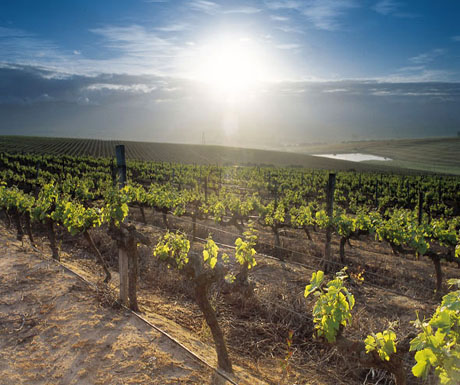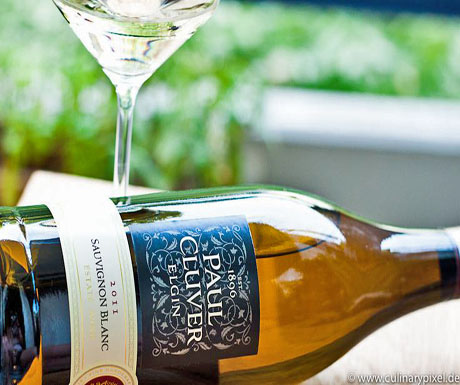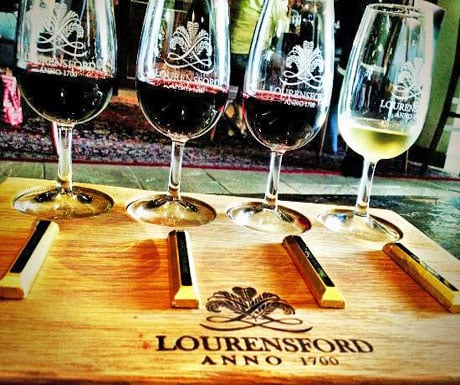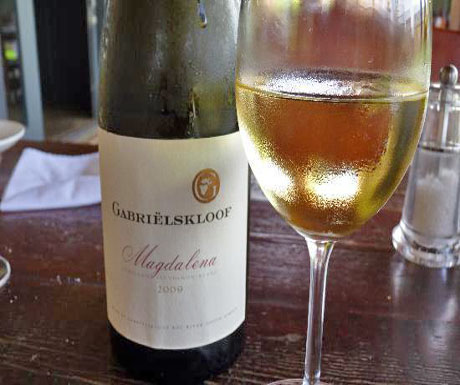4 sustainable South Africa wines to look out for
South Africa wines they are not only popular among locals but equally appreciated by connoisseur international wine buyers and even collectors. South Africa is known for its Chenin Blanc, Sauvignon Blanc, the unique South African Pinotage, Cape Riesling and several others. Many new vineyards focus on Pinot Noir. There has been a significant increase in land under vineyards lately, as the South African wine export market experienced a boom in recent years. But at the same time, there has been a cultivation of another kind. Collaboration between the wine and conservation sector delivered the Biodiversity & Wine Initiative, which has turned several of South African wineries into stewards for conservation and biodiversity. The Biodiversity and Wine Initiative was established in 2004, to protect the conservation worthy Cape Floral Kingdom while still offering opportunity for producing of some of the worlds finest wines. This is particularly meaningful as South Africas best wines are produced in the Cape Floral Kingdom, including vulnerable renosterveld and fynbos vegetation.
What is even greater news is that the Worldwide Wildlife Fund (WWF) South Africa recently announced their satisfaction with the South African wine industrys conservation efforts. From now on, WWF will be endorsing South African wine labels that are credible when it comes to sustainability and conservation. WWFs Sustainable Wines South Africa seal is brand new, and it is great news as conservation-minded consumers will know exactly how their purchase is impacting on local conservation efforts. Now, the discerning wine collector, average buyer and even the tourism industry can buy from cellars that incorporate biodiversity best practices as part of their wine cultivation without paying a whole lot extra. Look out for the sugarbird-protea logo. The following brands deserve a mention:
Award winning Cederberg Private Cellar produces six wine ranges, from a beautiful 53 hectares of vines. With the dramatic Cederberg Mountains where leopards still roam freely as backdrop, the Cederberg Private Cellar benefits from various environmental dynamics including crystal clear waters, a climate perfectly suited for vineyard production and rich soils. Their cultivars include Chardonnay, Viognier and Merlot, from which they produce a variety of top class blends. But Cederberg Private Cellar is giving back. The farm is surrounded by the Cederberg Wilderness Area, a formal conservation and protection area. Cederberg Private Cellar is a custodian of this wilderness area, and is a member of the Biodiversity & Wine Initiative. It has dedicated vast stretches of natural land to conservation, protecting local fauna and flora for future generations. Through its dedication to conservation and safekeeping of the conservation-worthy Cederberg Mountains, this is one of South Africas top cellars when it comes to conservation and respect for the environment.

The renowned Paul Cluver cellar in Elgin is not only a wine pioneer of South Africa, but also a leader when it comes to the South African wine industrys conservation stewardship. They have committed over a thousand hectares for conservation in the pristine Elgin region. The cellar is not new to conservation either, with a track record of conservation records dating back several decades. What makes this wine cellar even more impressive is that it is included in the Kogelberg Biosphere Reserve, forming part of a world-wide network of biospheres. It further lives up to its commitment to blend wine and biodiversity with initiatives such as the Green Mountain Eco Route the very first biodiversity wine route in the world! Look out for the Biodiversity Wine Initiative label on their entire wine range, including their favourite Sauvignon Blanc and Estate Pinot Noir.

Hailing from the scenic Lourensford Wine Estate, Lourensford wines are among South Africas producers. The estate lies in the Helderberg Mountains, known and appreciated for its rich flora heritage. Lourensford has taken the opportunity offered by this heritage to develop their own biodiversity strategies, earning them the prestigious Championship Status accolade awarded by the Biodiversity & Wine Initiative. Their conservation work includes the conservation of an extensive 1,200 hectares including pristine fynbos and extends to various rivers, including the Lourens River which is South Africas only river to be declared a protected natural environment. Protection of the natural river environment has paid off, and the river today boasts with a healthy population of 65,000 trout and various other endemic fish. Lourensford Wines have taken their conservation efforts a step further, introducing environmental education and eco-tours for local schools. Such conservation efforts only come with sincere dedication something which Lourensford Wine Estate has excelled at. Their wines include various ranges and specialities, including Chardonnay, Viognier, Merlot, Shiraz each expressing the unique and protected environment which forms part of this remarkable estate.

They may be the new kid on the block, but Gabrielskloof Cellar and Wine Estate has already saved land, planted back indigenous trees and shrubs, re-introduced birdlife and rehabilitated old farmland to its natural state. Their wines are refreshing and ranges include Sauvignon Blanc, Rosebud (a Shiraz/Viognier Rosé) and impressive blends. Located in the rural Overberg region, Garbielskloof has dedicated 50 hectares of its total 130 hectares to conservation while still developing its vineyards and cellar.

Does the consumer pay?
There are discerning customers who do not mind paying extra for sustainable products, but the question on the average consumers mind is what are these conservation efforts adding to the price of wine? A good quality South African white wine can be bought from $4.00, whilst quality brands with this conservation label, can cost from as little as $6.00. Bearing in mind that award-winning wines in South Africa cost around $20.00, there truly are wine choices at different price levels, and consumers will not be paying a fortune to support this initiative.
With so much general product greenwashing happening in the world today, it is refreshing to find an initiative that is truly contributing to product sustainability. In fact, with more than 175 accredited cellars, one hectare has been committed to conservation for every hectare of South African vineyards. And WWF-SA expects this ratio to increase even more, in favour of local conservation. Were seeing that South Africa is pioneering in wine sustainability, adding authentic value to wine offered to the consumer, while giving back to the precious South African environment.
Javier Luque is a Co-Founder and Director of Your African Safari.
If you would like to be a guest blogger on A Luxury Travel Blog in order to raise your profile, please contact us.
Did you enjoy this article?
Receive similar content direct to your inbox.

